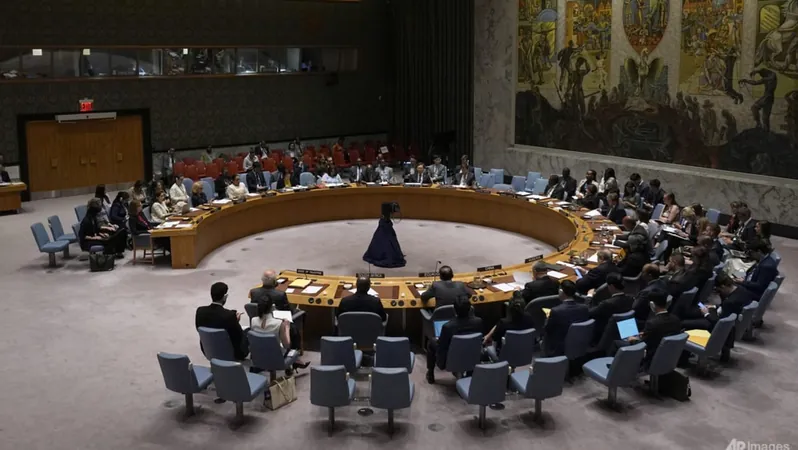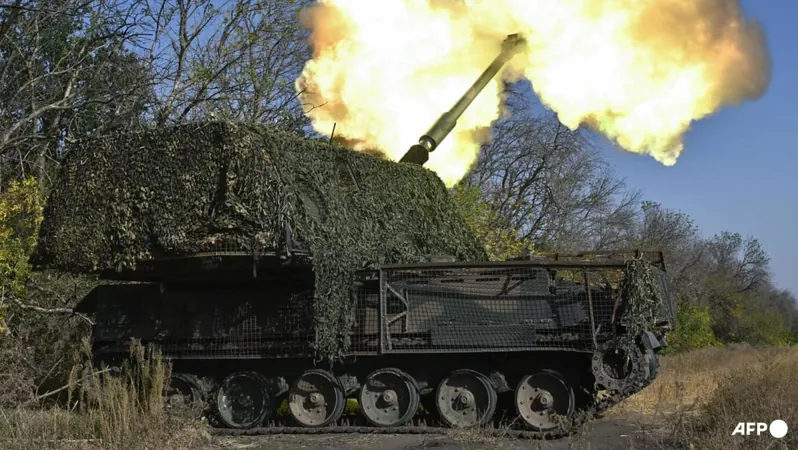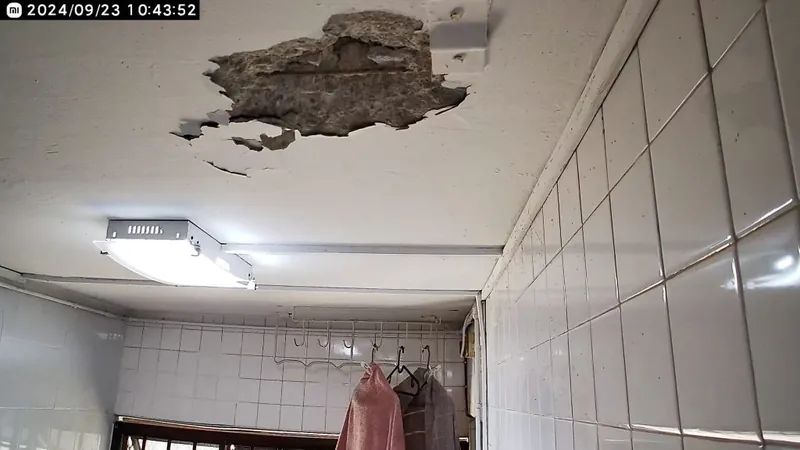
Finland's President Calls for Radical Reforms at UN Security Council – Is Change on the Horizon?
2024-09-18
A Call for Change
In a bold move, Finland's President Alexander Stubb has challenged the status quo at the United Nations, advocating for substantial reforms to the Security Council. His proposals include the abolition of the controversial single-state veto power, key changes in council membership, and strict measures against nations waging illegal wars, specifically targeting Russia's ongoing invasion of Ukraine.
A Global Focus
Stubb's passionate plea comes as the world gears up for the UN General Assembly next week in New York, where the future composition of the Security Council will be a focal topic. He emphasized the need for a more representative council, suggesting that the number of permanent members should increase from five to ten. This would potentially involve adding representatives from Latin America, Africa, and Asia, enhancing the voices of underrepresented regions.
Challenging Veto Power
“No single state should wield veto power in the UN Security Council,” Stubb asserted in a recent interview with Reuters. This statement echoes a growing frustration among many nations regarding the current council's unyielding deadlocks, which often leave critical global issues unresolved, from the conflict in Ukraine to humanitarian crises in Gaza.
Potential Shift in UN Dynamics
In a significant alignment, the United States, another of the five nations holding veto power alongside Russia, China, France, and Britain, has signaled support for the inclusion of two permanent seats for African nations. This could represent a pivotal shift within the UN structure, which has long been criticized for its disproportionate power dynamics favoring a select group of countries.
Accountability for Illegal Wars
Expanding on his proposals, Stubb asserted that any member nation engaging in an “illegal war" should face suspension from the council, explicitly referencing Russia's aggression in Ukraine. This stance directly confronts Moscow's justifications for its actions, which it claims aim to protect historical territories and create buffers against Western influence.
Hope for Meaningful Change
While acknowledging that his proposals may sound ambitious for a small member state like Finland, Stubb expressed hope that larger nations would also recognize the necessity for change. He stated, “They talk the talk, but don’t walk the walk,” underscoring the responsibility of powerful countries to initiate real reform.
The Risks of Exclusion
Stubb also warned that if countries from the Global South, Latin America, Africa, and Asia do not gain meaningful involvement in the UN system, they risk turning away from it altogether. "That is not a future we want to see," he stressed.
Unfolding Events at the UN
As the UN approaches its 80th anniversary, Stubb strongly supports Ukrainian President Volodymyr Zelenskyy, who will present his “victory plan” at the Conference. Stubb remarked that 90 percent of Zelenskyy’s strategy is already in place, with the remaining details crucial for Ukraine’s success in the ongoing conflict.
Support for Ukrainian Forces
He further urged Western nations to reconsider restrictions on arms donated to Ukraine, stating that current limitations leave Ukrainian forces at a disadvantage. “We need to let that hand go and allow Ukraine to do what Russia is doing to it,” he insisted.
Global Reactions to Nuclear Threats
Despite the looming threats of nuclear escalation from Russian President Vladimir Putin, Stubb remains unfazed, asserting, "Last time Putin used aggressive nuclear rhetoric, the global South and China effectively told him to stop."
Looking Ahead
As the world watches, the coming weeks at the UN could set a transformative precedent for international relations and governance, directly impacting how nations collaborate in the face of modern conflicts. Will Stubb’s vision rally support, or will entrenched interests continue to prevail? Only time will tell.


 Brasil (PT)
Brasil (PT)
 Canada (EN)
Canada (EN)
 Chile (ES)
Chile (ES)
 España (ES)
España (ES)
 France (FR)
France (FR)
 Hong Kong (EN)
Hong Kong (EN)
 Italia (IT)
Italia (IT)
 日本 (JA)
日本 (JA)
 Magyarország (HU)
Magyarország (HU)
 Norge (NO)
Norge (NO)
 Polska (PL)
Polska (PL)
 Schweiz (DE)
Schweiz (DE)
 Singapore (EN)
Singapore (EN)
 Sverige (SV)
Sverige (SV)
 Suomi (FI)
Suomi (FI)
 Türkiye (TR)
Türkiye (TR)